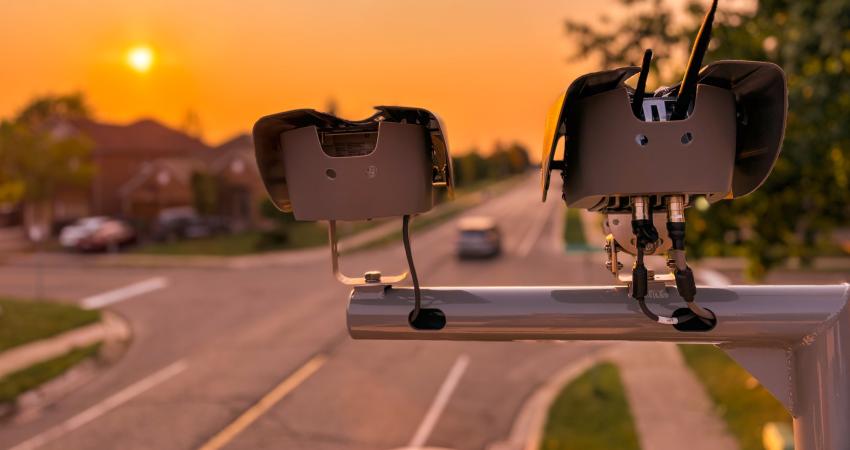Cloud computing technology benefits GIS
Geographic Information Systems are a relatively late adopter of cloud computing,but the benefits of host services for geospatial data and analysis are becoming clear. Jason Barnes reports Both the concept and the reality of cloud computing have been around for some time. More and more industry sectors are entrusting external service providers with the provision of their computing services via the internet. However, the Geographic Information System (GIS) industry has been slow to embrace the trend. This is

Cloud computing technology benefits GIS
Geographic Information Systems are a relatively late adopter of cloud computing,but the benefits of host services for geospatial data and analysis are becoming clear. Jason Barnes reports Both the concept and the reality of cloud computing have been around for some time. More and more industry sectors are entrusting external service providers with the provision of their computing services via the internet. However, the Geographic Information System (GIS) industry has been slow to embrace the trend. This is

ITS technology reduces congestion, improves workzone safety
As the road-building season gets under way in the US, the Federal Highway Administration has just published a White Paper which deals with the use of ITS technology in work zones. On 30 April 2009, the US Federal Highway Administration (FHWA) published a White Paper which was prepared by the US Department of Transportation (USDOT) to inform public agencies about the use of ITS to manage construction work zones. This is a particularly relevant topic given the large number of construction projects that are ex

Study highlights weather effects on traffic
Extreme weather conditions cost the EU’s transport system at least €15 billion (US$18.44 billion) per year according to a a study carried out by the Finnish VTT Technical Research Centre. The study reveals that the greatest costs incurred are from road accidents, with the associated material and psychological effects. Costs arising from accidents are expected to decrease in volume, although time-related costs attributable to delays are projected to increase. In part, this last effect is due to climate chang
Growth of telematics-based pay as you drive car insurance systems
Car insurance made cheaper by telematics has returned to news headlines in the UK this year. Will it really take off this time and can vehicle tracking provide an effective tool for enforcing or encouraging insurance compliance? Jon Masters reports Will 2012 go down as the year that telematics-based car insurance took off? In the UK at least, a groundswell of new policies, with premiums priced on the basis of tracked and analysed driving style, suggests a turning point has been reached. Some would argue t

Methanol range extender for fuel cell vehicle
The innovative QBeak electric car is to benefit from a sophisticated methanol fuel cell range extender that will give it a range of at least 800km. Development work is being carried out on the project by a consortium of Danish companies. The plan is to develop a novel, range-extended electric vehicle that uses biomethanol as a fuel source. TheModularEnergyCarrier concept (MECc) project has just been granted funding from the Danish government. The reworked electric car is expected to deliver high market pote
Sharp drop in traffic related deaths in Denmark
In the first five months of 2012, the number of traffic related deaths in Denmark was down by 25 per cent compared to the corresponding period in 2011. In May, the number of deaths in traffic was by nearly half - 13 compared with 25 the previous year. The Danish Road Directorate (Vejdirektoratet) and the Council for Road Safety (Rådet for Sikker Trafik) call the figures remarkable. However, the authorities have difficulty explaining the exact reason for the sharp decline but cite rising fuel prices, the eco
ITS Canada honours Joe Lam with Distinguished Member of the Year Award
Toronto, Canada, July 16, 2012 – Delcan, a multi-disciplinary engineering, planning, management and technology firm, is proud to announce that Delcan’s Joe Lam has been presented with the Distinguished Member of the Year award from the ITS Canada. With more than 40 years of experience in traffic control and management systems, he has been with Delcan for 32 years and is an internationally recognised expert with strong influence on ITS issues both in Canada and around the world. He served as chairman of ITS
ITS America transportation reauthorization – free webinar this Friday
Eleven days ago, President Obama signed the conference report to accompany H.R. 4348 (MAP-21), which reauthorises the America’s surface transportation programmes through the end of Fiscal Year 2014. ITS America will host a webinar from 2:00 – 3:00 p.m. EST this Friday, 20 July, 2012 to provide an update on the newly passed surface transportation reauthorisation bill. Normally reserved for ITS America members, this special edition webinar is free for anyone interested in learning more about what the new bil
Connected vehicles, connected systems equals next generation ITS
Iteris has been awarded a new contract to lead a team working to update and support the United States’ National ITS Architecture. Pete Goldin reports on this latest initiative to help all US agencies’ development and application of ITS systems The United States Department of Transportation has a set of standards safeguarded for ITS for the US, with a vision for the future of transportation technology called the National ITS Architecture. This may sound like a secret plan kept in a vault somewhere, but the

The control room revolution - LCD screens and IP technology
Coming soon to a screen near you: Brady O. Bruce and John Stark of Jupiter Systems discuss trends in control room technologies. Perhaps the single most important trend in the control room environment over the last 12-18 months has been the accelerated move towards the adoption of flat-screen Liquid Crystal Display (LCD) technology. Having made their presence felt in the home environment, where they continue to replace outdated cathode ray tube-based technology, LCDs have reached the point where their perfor

New technologies enable increased collaboration, cooperation
The continued expansion of IP camera networks increases the availability of useful information. At the same time, the opportunity exists to increase inter-agency collaboration. This makes information management all the more necessary in the control room environment. But the transportation sector could do a lot to help itself by gaining a better idea up front of what and how it wants to do things, says Electrosonic's Karl Johnson.

Charging station infrastructure boost to electric vehicle use
The first section of a planned network of stations for charging electric vehicles – the West Coast Electric Highway – opened in March, promising a welcome boost to the environment and economy of Oregon. Pete Goldin reports What should come first, the electric vehicle or the charging station? This dilemma has been hindering proliferation of ‘EVs’ in the US for years. Without a widespread and reliable infrastructure of charging stations, the American public is not likely to adopt EVs en masse. This may all b

Taking the long term view to toll safety, adopting new technology
OmniAir's Tim McGuckin takes a look at what happens when a tolling authority makes safety its principal operating criterion. The bottom - line effects, he says, are not as onerous as one might think. Replacing an existing 915MHz-based Electronic Toll Collection (ETC) system with a new 915MHz system for toll collection is - from a technology standpoint - comparable to trading in your 1999 high-mileage Buick for another 1999 Buick with '0' on the odometer.

Transportation infrastructure technology continues its advance
It is now 20 years since publication of the Strategic Plan for Intelligent Vehicle Highway Systems. A select group of luminary figures of the ITS industry give their assessment of progress to date This year the IVHS Strategic Plan turns 20, signaling the graduation of the field of Intelligent Transportation Systems from its tumultuous teens to young adulthood. After two decades tethered by the cords of youth and protected by the strict control of adult institutions, ITS has reached a turning point. Its y

Transportation infrastructure technology continues its advance
It is now 20 years since publication of the Strategic Plan for Intelligent Vehicle Highway Systems. A select group of luminary figures of the ITS industry give their assessment of progress to date This year the IVHS Strategic Plan turns 20, signaling the graduation of the field of Intelligent Transportation Systems from its tumultuous teens to young adulthood. After two decades tethered by the cords of youth and protected by the strict control of adult institutions, ITS has reached a turning point. Its y

Transportation infrastructure technology continues its advance
It is now 20 years since publication of the Strategic Plan for Intelligent Vehicle Highway Systems. A select group of luminary figures of the ITS industry give their assessment of progress to date This year the IVHS Strategic Plan turns 20, signaling the graduation of the field of Intelligent Transportation Systems from its tumultuous teens to young adulthood. After two decades tethered by the cords of youth and protected by the strict control of adult institutions, ITS has reached a turning point. Its y

Progress towards a pan-European cooperative infrastructure
Kallistratos Dionelis, General Secretary of ASECAP, makes the case for a lightly regulated, staged progression towards a pan-European cooperative infrastructure environment, the achievement of which should look to engender cooperation between the public and private sectors. Such an approach, he says, is the only real path to success.

Real time active traffic management improves travel times
Traffic management centres (TMC) have traditionally served to provide surveillance and responses to traffic incidents and recurring and non-recurring changes in road networks. Typically, a TMC collected field data from the roadway and transit infrastructure and provided the integration necessary for operators to see what was happening and then coordinate a response. Standard operating procedures (SOPs) guided operators on how to respond to a given situation. It eventually became impractical for TMC operat

Karachi plans BRT system
The government of Sindh in Pakistan is planning to implement a bus rapid transit (BRT) system in Karachi and the first phase will cost US$5 million. The system will enable 200 buses to carry around 15,000 passengers an hour and there will be special lanes for buses to operate.



